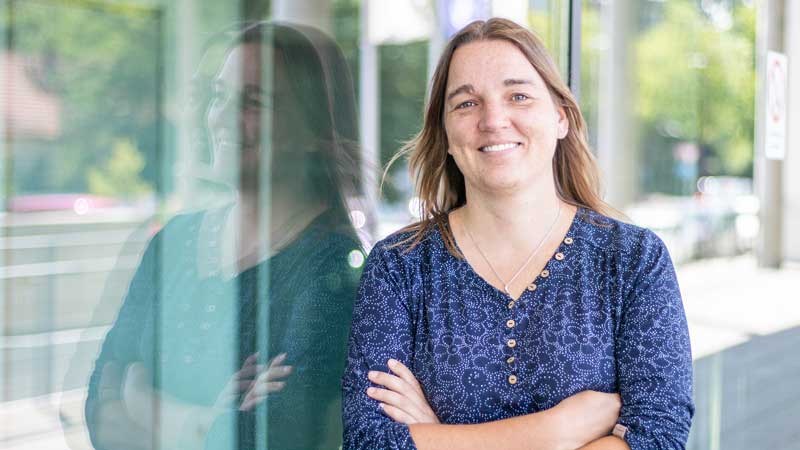Dr. Anna Poetsch (a member of Physics of Life; PoL) and her research group at the Biotechnology Center (BIOTEC) of TUD Dresden University of Technology received a grant from the European Partnership for Personalized Medicine (Ep PerMed). In a joint effort with other European partners, they will investigate molecular mechanisms behind leukemia and explore how to use these new insights for personalized treatment approaches. The Poetsch group will focus on mechanisms of genome deregulation using machine learning approaches. The project is funded through the Horizon Europe program and is set to run for three years.
Leukemia is a type of blood cancer that makes the patient’s body produce abnormal blood cells. To combat the disease, treatments aim to destroy the cancerous tissue, located in the bone marrow and lymphatic system. Current treatments are largely based on destructive methods such as chemotherapy and radiation therapy, that due to the damage to essential tissues can have substantial side effects for the patient.
Understanding Leukemia
The Poetsch group and their collaborators hope to better understand how leukemia develops in the first place.
“We know that during the development of leukemia, cells change their genome so that regulatory elements that belong to one gene suddenly regulate another. One of those genes is called FLT3. Changes in FLT3 can already be targeted with a specific treatment, but whether the treatment can be effective is dependent on how exactly the gene is misregulated,” says Dr. Anna Poetsch, research group leader at the BIOTEC and acting Chair of Genomics at TU Dresden.
“We aim to use our expertise in computational biology to uncover how genome changes occur in leukemia and to develop easier ways to see them. Currently, we rely on complex and expensive techniques. However, our goal is to develop innovative algorithms that will streamline the detection of these changes, making it easier to use daily for clinicians,” adds Dr. Poetsch.
The Path Towards Treatment
To understand the genomic changes that underlie leukemia, the Poetsch group will analyze data from a large number of leukemia patients. Their collaborators will provide DNA sequencing data, gathered from adult and pediatric patients. The Poetsch group then plans to extract which regulatory elements control which genes and point out harmful changes in the genome of cancer cells. Here, they will focus on the gene FLT3 but also explore which other genes may be affected by similar mechanisms.
To tackle the complexity of these extraordinarily big amounts of data, the group will use a DNA Language Model (DLM) they developed. The model, called GROVER, can be leveraged to find global patterns in the DNA sequences and ultimately provide invaluable insights that improve our understanding of leukemia.
“We hope to find the mechanisms behind gene regulation changes that allow the available individual targeted therapies to be more effective through a better patient selection. With this we plan to lay the groundwork for a new clinical trial,” says Dr. Anna Poetsch.
The Collaborators
The European Partnership for Personalized Medicine (Ep PerMed) grant was awarded to 27 different projects across Europe. In this project, the Poetsch group will collaborate with colleagues in Regensburg, Italy, Spain, Portugal, and Lithuania.
”We all specialize in different aspects of cancer research, with my group contributing the computational biology and machine learning approach. It is an interdisciplinary group that can work in synergy towards a common goal of improving personalized treatment approaches for leukemia,” concludes Dr. Poetsch.
----------
